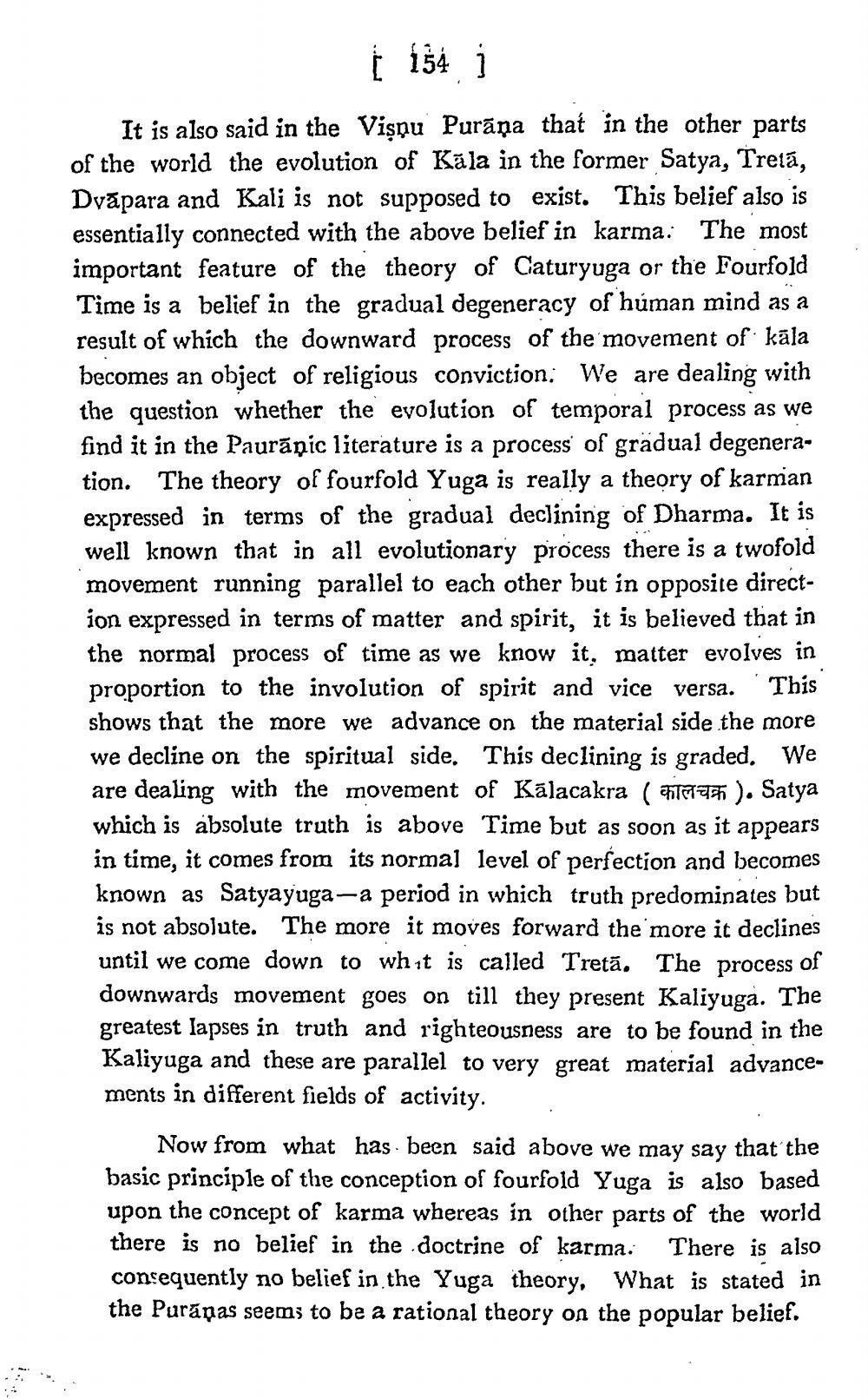________________
t 154 i
It is also said in the Vişņu Purāņa that in the other parts of the world the evolution of Kala in the former Satya, Treta, Dvapara and Kali is not supposed to exist. This belief also is essentially connected with the above belief in karma: The most important feature of the theory of Caturyuga or the Fourfold Time is a belief in the gradual degeneracy of human mind as a result of which the downward process of the movement of kāla becomes an object of religious conviction. We are dealing with the question whether the evolution of temporal process as we find it in the Paurāņic literature is a process of gradual degeneration. The theory of fourfold Yuga is really a theory of karman expressed in terms of the gradual declining of Dharma. It is well known that in all evolutionary process there is a twofold movement running parallel to each other but in opposite direction expressed in terms of matter and spirit, it is believed that in the normal process of time as we know it, matter evolves in proportion to the involution of spirit and vice versa. This shows that the more we advance on the material side the more we decline on the spiritual side. This declining is graded. We are dealing with the movement of Kalacakra (a). Satya which is absolute truth is above Time but as soon as it appears in time, it comes from its normal level of perfection and becomes known as Satyayuga—a period in which truth predominates but is not absolute. The more it moves forward the more it declines until we come down to what is called Tretă. The process of downwards movement goes on till they present Kaliyuga. The greatest lapses in truth and righteousness are to be found in the Kaliyuga and these are parallel to very great material advancements in different fields of activity.
Now from what has been said above we may say that the basic principle of the conception of fourfold Yuga is also based upon the concept of karma whereas in other parts of the world there is no belief in the doctrine of karma. There is also consequently no belief in the Yuga theory, What is stated in the Puranas seems to be a rational theory on the popular belief.




